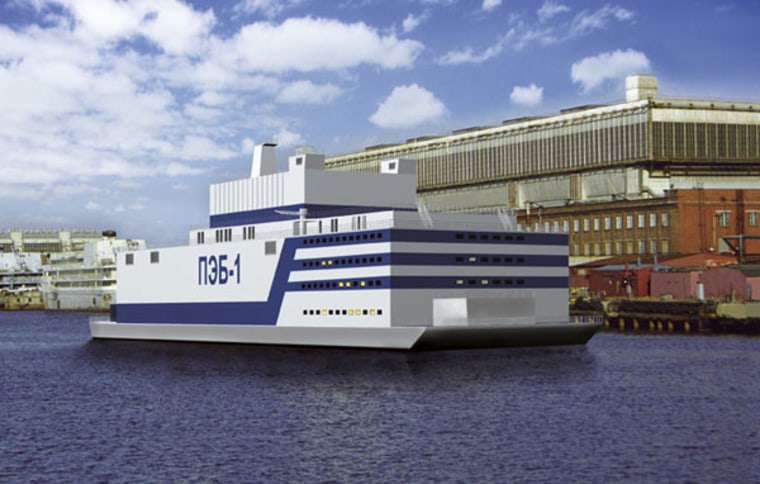An Arctic military shipbuilding plant and Russia's Atomic Power Agency signed a contract Wednesday to build the world's first floating nuclear reactor.
The $336 million reactor will be built by the Sevmash plant in the Arctic port of Severodvinsk beginning next year, and will be commissioned in October 2010, said Sergei Obozov, head of the state-controlled Rosenergoatom consortium in charge of nuclear power plants.
He said the reactor — to provide heating and electricity to Sevmash — was the perfect solution for supplying energy to remote Arctic sites, and that Russian authorities were looking at 11 other possible sites for such reactors.
Atomic Power Agency head Sergei Kiriyenko denied that the reactor would pose a security or safety risk, saying that the Sevmash plant — the only Russian plant where atomic submarines are manufactured — was sufficiently well guarded.
"There will be no floating Chernobyl," Kiriyenko said, according to ITAR-Tass news agency.
"It is no secret that the question has arisen repeatedly: 'Is such a thing at all possible?'," Kiriyenko was quoted as saying by his ministry's press service. "But today the government's position is such ... that we are obliged to use our experience... No one else in the world has such experience as we have accumulated over the years in our atomic fleet of safely operating small-capacity reactors."
Environmental groups have sharply criticized the proposed floating reactors.
"Floating nuclear power plants are absolutely unsafe, inherently so. There are risks of the unit itself sinking, there are risks in towing the units to where they need to be," said Charles Digges, editor of the Web site for the Norwegian-based environmental group Bellona.
"They (Russians) are sitting on so much oil and have so many other avenues to alternative sources of energy for these particular regions where they would use floating nuclear power plants ... which are cheaper to build, cheaper to research," he said.
Russia has in recent years overcome a public backlash against nuclear power that followed the April 1986 Chernobyl nuclear disaster, and the government has supported efforts to revive the nuclear industry.
Russia currently has 31 reactors at 10 nuclear power plants, accounting for 16-17 percent of the country's electricity generation, and President Vladimir Putin has called for raising the share to 25 percent.
